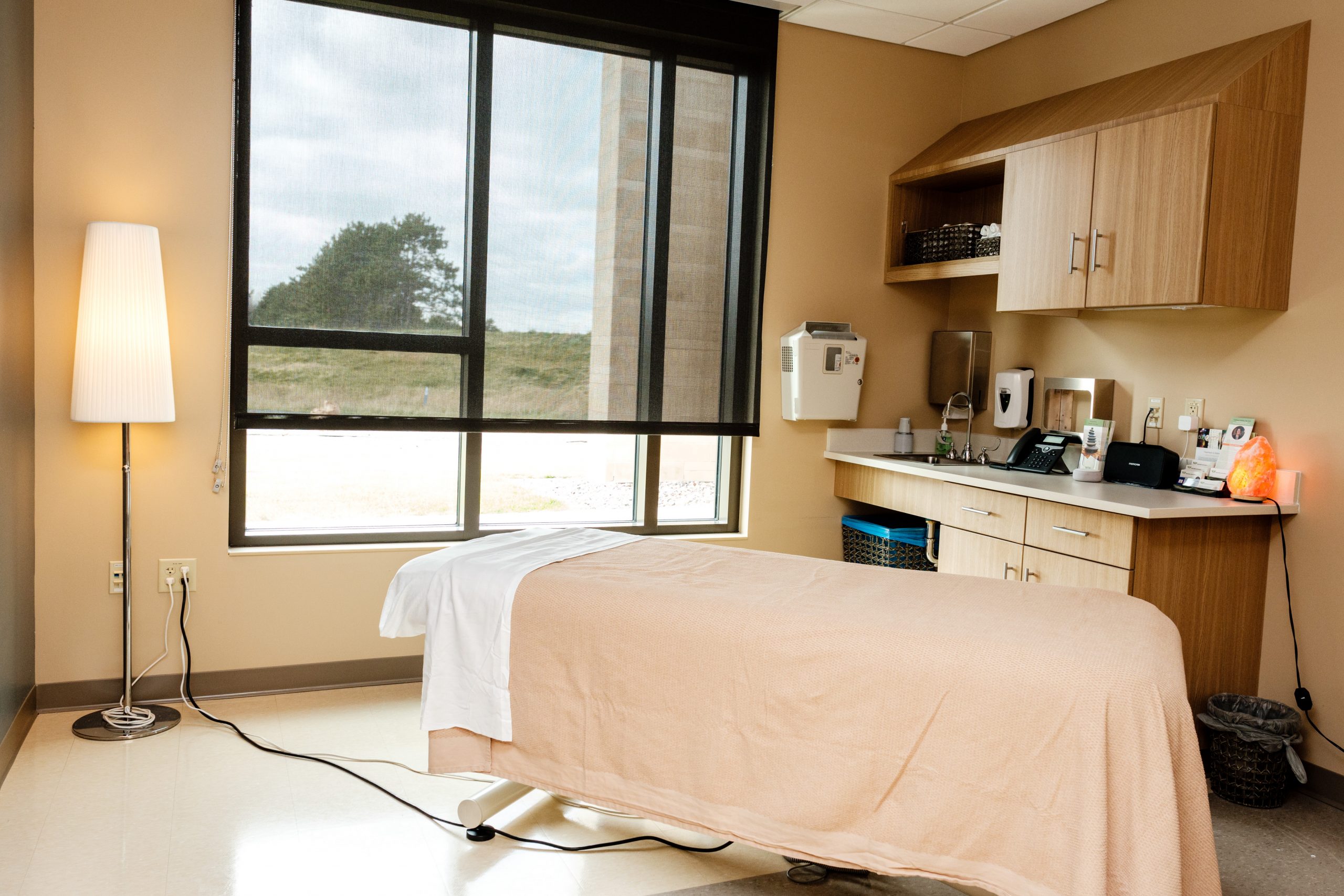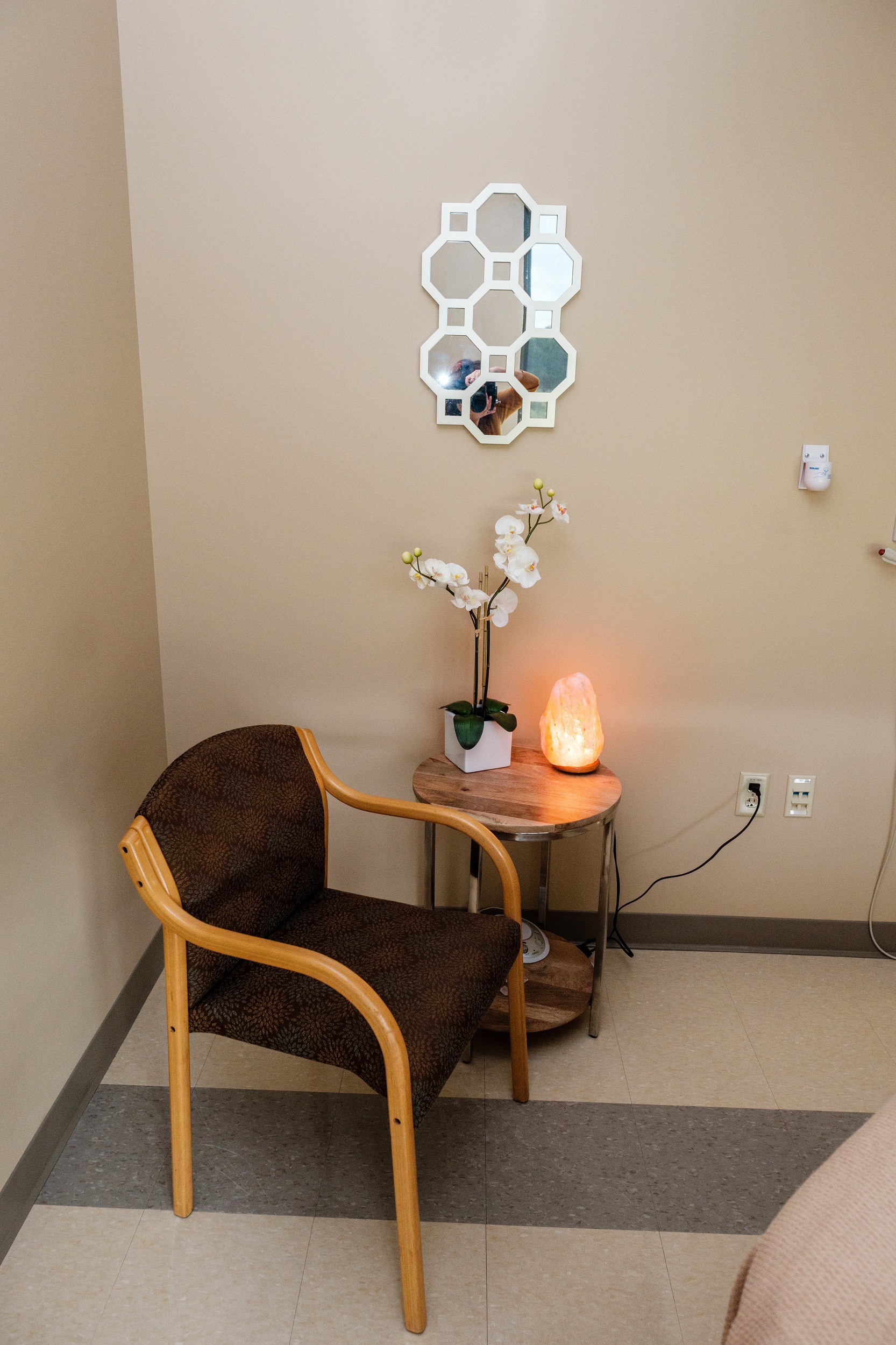Overview
Traditional Chinese medicine (TCM) is a comprehensive medical health care system comprised of a range of traditional therapies, with the patient and practitioner being partners in the process. Treatments focus on the whole person and are designed to restore balance within the body. Treatments may be used individually or in combination to facilitate the body’s innate healing response.
Needling is what often comes to mind when thinking of acupuncture, however traditional Chinese medicine encompasses many other treatments.
Common conditions treated by Traditional Chinese Medicine (TCM)
Pain
Acupuncture helps to provide pain relief by stimulating nerves which leads to the release of endorphins and other natural painkillers, decreasing the intensity of the pain signal the brain receives.
Allergies / Colds / Flu
TCM simulates the immune system to help prevent or assist recovery from colds, flus, and allergies. Acupuncture can improve common symptoms associated with colds, flus, and allergies like chills or fever, body aches, sore throat, sneezing, itching, cough, etc.
Gastrointestinal Disorders
TCM promotes proper balance of the digestive system by stimulating or inhibiting gastric contractions, secretions of digestive cells with the goal of eliminating gas, bloating, belching, diarrhea or constipation. It can also decrease or stop nausea or vomiting, which can be beneficial for those undergoing chemotherapy or having difficult pregnancies. Research shows that TCM can be helpful in managing chronic gastric disorders like irritable bowel syndrome, Crohn’s disease, ulcerative colitis, acid reflux, ulcers, gallstones, or diverticulitis.
Headaches / Migraines
TCM promotes blood flow and can help to widen the small vessels to help relieve pain associated with migraines. Acupuncture supports parasympathetic nervous system activity, helping to regulate heart and respiratory rates, blood pressure, and muscle tension.
Mental Health (anxiety, depression, PTSD)
TCM facilitates in regulation and release of endorphins help regulate mood, sleep, and symptoms associated with anxiety, depression, attention deficit disorder, post traumatic stress disorder, substance use, and eating disorders (both physical and emotional).
Women’s and Men’s Health Disorders
TCM facilitates in treating disorders specific to women’s and men’s reproductive health by focusing on hormone regulation. Commonly treated conditions are listed below:
- Endometriosis
- Polycystic Ovarian Syndrome (PCOS)
- Perimenopause/menopause
- Menstrual cramping/ heavy/no Bleeding
- Irregular menstrual cycles
- Infertility
- Vaginal, uterus, ovary specific issues
- Prostate/penial/testicular issues
- Sexual dysfunction
Autoimmune Disorders
TCM facilitates regulation of the lymphatic system and the immune system, which can decrease autoimmune responses to the body. Common conditions treated are thyroid disorders, diabetes, arthritis, Lupus, and Multiple Sclerosis (MS).
Pre and Post – Surgical Symptoms
Research has found that improved recovery from surgery by 40% when receiving acupuncture care pre or post-surgery. TCM’s ability to increase the immune system can decrease risk of post op infections. Promoting blood flow and decreasing edema can assist the speed of healing as well as improving patient comfort throughout the healing process.
Pregnancy
TCM is backed by multiple research studies indicating that acupuncture and other modalities are helpful in managing symptoms associated with pregnancy, including morning sickness, headaches, fatigue, sleep difficulties, lower back and pelvic pain, anxiety, acid reflux, blood pressure, breech positioning and edema. TCM has been known to regulate hormones and fluctuations during the different trimester to help mom and baby have a smooth pregnancy and prevent more serious conditions.
Labor Support
TCM has been known to increase effectiveness of uterine contractions, quicken labor, increase energy, and alleviate pain by relaxing pelvic muscles. Labor support can be started at 36 week of gestation to prepare mom and baby for labor at 39 to 40 weeks gestation. Research has also shown the benefits of postpartum support to help women recover from labor, regulate depression and anxiety, alleviate pain, encourage lactation support, and regain energy.
Sleep Disorders
TCM regulates the sleep wake cycle in patients by encouraging the bodies natural production of melatonin. Research has also shown that patients are able to get deeper, more restful sleep and manage sleep disorders caused by other environment, medication, or social factors.
Cancer Support
TCM is used to help support an individual with cancer by helping treat symptoms associated with treatment of radiation and chemotherapy. Patients see less nausea and vomiting, increased appetite, less pain, increased energy, decreased neuropathy sensations, and increased immune function.
Dermatology
TCM can settle over active immune systems to help to relieve red, inflamed, and itchy skin due to hormones, food triggers, environment, and medications. Common conditions treated are acne, rashes, dermatitis, dyspigmentation of the skin, and hives.
Neurological Disorders
Research shows that acupuncture and other TCM modalities help to regulate blood flow and stimulate the central nervous system to improve neuropathic tingling, burning, and pain. Research has also show that TCM can help slow progression of neurological disorders. Common conditions treated are neuropathy of any origin, trigeminal neuralgia, Parkinson’s, Multiple Sclerosis (MS), Amyotrophic Lateral Sclerosis (ALS), stroke, seizures, and Guillain-Barre syndrome.
Pediatric Care
TCM treatment can be used for anyone of any age, however often pediatric treatments utilize other modalities, not needling. Research has shown to help with common pediatric conditions including constipation, diarrhea, colic, teething, pain, over stimulated nervous systems, and overall preventive care.
stress or Relaxation management
TCM regulates neurotransmitters to help decrease the physiological impact of stress, as well as assisting with processing emotions and other side effects from living in a busy life. Research has shown that regulation of stress can prevent more serious conditions such as heart attacks, high blood pressure, stroke, diabetes, infertility, and mood disorders.
The World Health Organization endorses acupuncture, and clinical studies have shown it to be a beneficial treatment for many conditions, including:
- Chronic pain: migraines, neck and back pain, tendonitis, sciatica, carpal tunnel syndrome, fibromyalgia and rheumatoid arthritis
- Digestive: irritable bowel syndrome, colitis, gastritis and constipation
- Women’s Health: menstrual cramps and headaches, irregular or heavy periods, infertility and menopausal symptoms
- Psychological: depression, anxiety, stress and insomnia
- Cancer treatment symptom management: fatigue, generalized pain, dry mouth, peripheral neuropathy, nausea and vomiting
- Seasonal allergies
- High blood pressure
What to expect:
Initial assessments are typically 90 minutes long, starting with obtaining the patient’s medical history and goals for treatment. This information is combined with traditional Chinese medicine theory to develop a plan for care prior to any treatment being performed.
A new assessment is required if patients wish to add to their treatment plan.
Follow-up appointments are 45-60 minutes and include treatment, disorder management, and lifestyle advice. Frequency of appointments will vary depending on treatment plan and phase of treatment.
Traditional Chinese medicine treatments build off each other, so it is important to follow the treatment plan your acupuncturist lays out for you to see optimal results.
Treatments:
Patients typically lay on their stomachs or their backs but if this is not a comfortable position please discuss this early on in the initial assessment so the practitioner is aware of the need for modifications.
A minimum of 20 minutes with needles in place is required for effective treatment, 30 is preferred. During treatments, the acupuncturist may adjust the needles (gentle moving or twirling) or use electrical stimulation to further stimulate the therapeutic response. In most cases, the patient will simply be asked to relax and remain quiet while the needles remain in place.
Traditional Chinese Medicine treatments may consist of any combination of the following:
Needling
The National Certification Commission for Acupuncture and Oriental Medicine (NCCAOM) defines acupuncture as the stimulation of specific points on the body by insertion of very fine, sterile, stainless-steel needles to elicit a predictable physiological response.
Acupressure
The application of pressure with the thumbs or fingers to the same discrete acupuncture points on the body to stimulate therapeutic effects.
Gua Sha
An instrument-assisted scraping of the skin with lubrication (sometimes called coining or spooning) to create therapeutic petechiae to improve circulation, reduce inflammation and adhesions, and release excess heat.
Cupping
Local suction is created on the skin with the application of a vacuumed sealed cup, either by fire or a pump, to encourage circulation, release fascia, and promote relaxation.
Moxibustion
A type of heat therapy in which an herb is burned above the sin to warm and stimulate an acupuncture point or affected area.
Tui Na
A traditional method of Chinese massage to improve circulation and enhance disease resistance.
Electrical acupuncture simulation (E-stim)
The use of a machine where a small electric current is passed between a pair of acupuncture needles to increase stimulation. This method can be used instead of physical manipulation of the needles by the acupuncturist.
Herbal medicine
The practice of using herbs and herbal preparations to maintain health and precent, alleviate, or cure disease.
Needle Free options:
Tuning fork, acupressure, Gua Sha, cupping, food therapy, ear seeds, magnets, and moxibustion
Cost:
Initial Visit: $85
Pediatric Initial Visit: $60
Follow-up: $60






